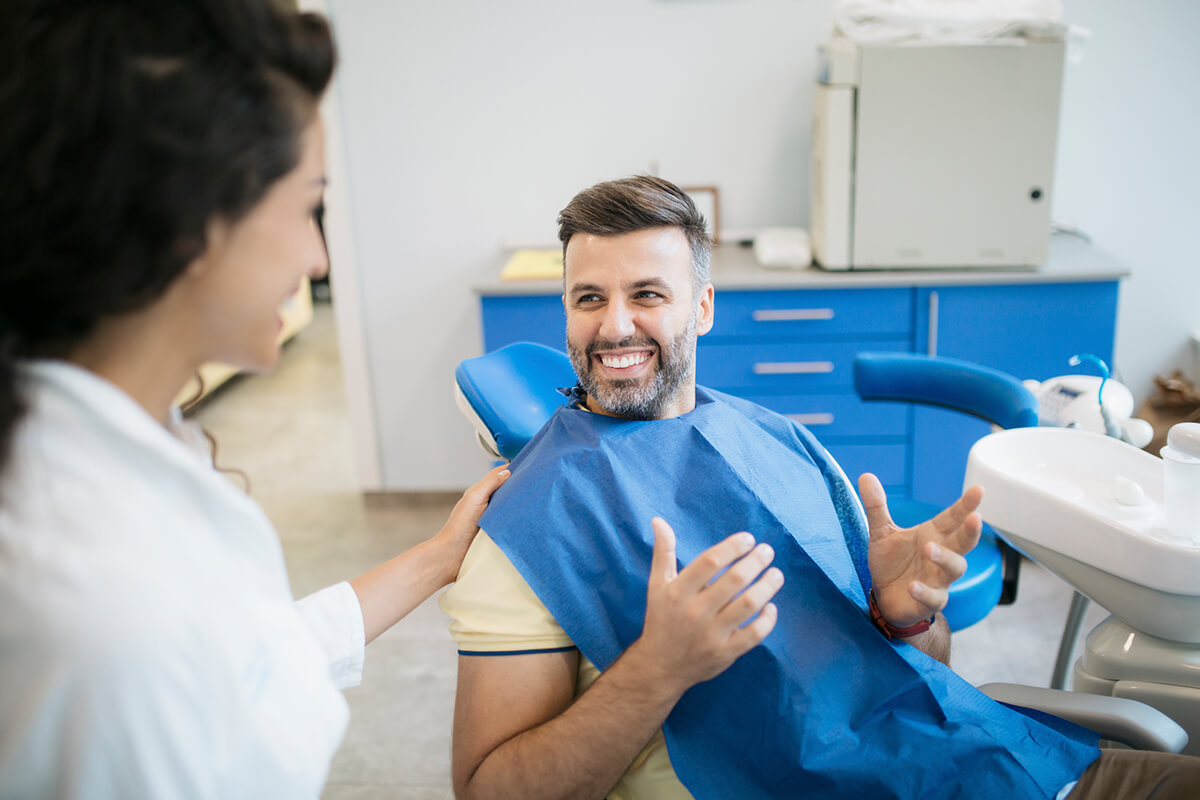The American Dental Association (ADA) recommends professional teeth cleanings every six months for optimal oral health benefits. Though dental cleanings and oral exams are two distinct services, the majority of people opt to combine the two services in a single treatment. So, why should you get your teeth cleaned twice a year? Read on to learn why biannual dental cleanings are recommended by the ADA and by Dr. Agnieszka Jamrozek.
Regular Dental Cleanings Reduce the Risk of Decay and Gum Disease
Cleanings performed by your dentist, or more likely by an experienced dental hygienist are the best safeguard against decay (cavities) and gum disease. Although excellent brushing and flossing habits at home are vital for removing plaque, even those with exceptional techniques and consistency will accumulate some plaque between dental cleanings.
The plaque that is difficult to reach on your own is often between teeth, and below the gumline. However, your dentist or dental hygienist will use technologically advanced tools to be able to clean these areas thoroughly, thereby reducing your risk of developing cavities or gingivitis.
Regular Cleanings Are Essential for Early Diagnosis of Oral Health Problems
Unless otherwise requested, your dental cleaning will include a comprehensive oral examination by the dentist. During this exam, your dentist will conduct an extensive evaluation of your oral health. They will look for symptoms of structural problems in the jaw and jaw joint. They will inspect the soft tissues for signs of infection or inflammation, or any abnormal changes that may warrant further testing. They will carefully examine each tooth to look for cracks, fractures, or signs of decay. Early detection of all oral health conditions can preserve your health while preventing costly, more extensive oral healthcare in the future.
Regular Dental Cleanings Help Prevent Tooth Loss
Untreated gum disease and tooth decay are the leading causes of tooth loss. Studies estimate that more than 175 million people in the U.S. are missing at least one tooth. As many as 30% of adults ages 65-74 have lost all of their teeth. Regular cleanings and oral exams, coupled with excellent oral hygiene habits at home help to prevent tooth loss as you age.
Professional Dental Cleanings Keep Your Teeth Looking their Best
Professional dental cleanings also provide esthetic benefits, such as keeping your teeth white and clean and helping to prevent bad breath. Cleanings remove plaque, tartar, and surface stains more effectively than brushing at home. Moreover, because a buildup of plaque can cause bad breath, removing it with regular cleanings helps prevent bad breath.
Frequently Asked Questions about Dental Cleanings
Will I receive an oral exam at every dental cleaning?
Yes, your biannual dental appointment with Dr. Jamrozek will include a cleaning and oral exam. Although they are two different services, they are done at the same appointment in order for Dr. Jamrozek to assess patients dental health and preemptively catch any issues while minimizing the amount of times patients need to make appointments. If patients have many dental issues, they may need to get an oral examination done prior to their cleaning.
Will I have to get X-rays during a dental cleaning?
Patients in good oral health will not need X-rays at each appointment. X-rays are necessary for patients who have symptoms of gum disease or other oral health conditions, and those who haven’t received regular oral healthcare. Patients in good oral health typically get a set of x-rays taken once a year and rarely need more.
Schedule a Dental Cleaning in West Milford, NJ
If it’s been six months or longer since your last dental cleaning, schedule an appointment with Dr. Jamrozek in West Milford, NJ. Dr. Jamrozek is a Google top-reviewed dentist, who provides comprehensive dental care including preventive, restorative, and cosmetic dental treatments. To schedule an appointment, call 973-728-3779 , or send us a message.
